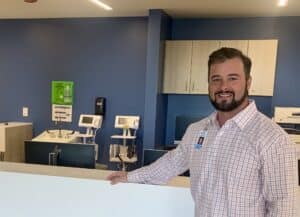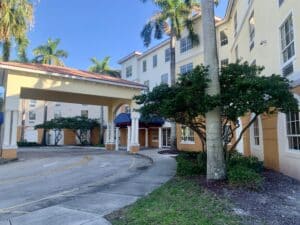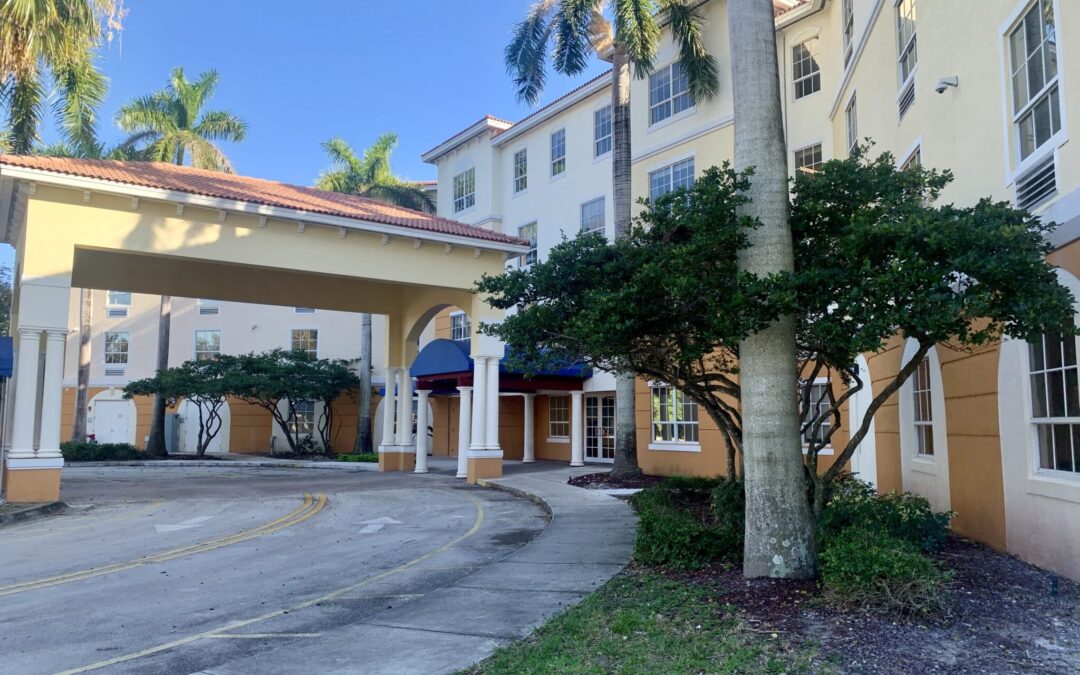The idea is to keep patients busily focused on good outcomes.
“They’re not just wasting time away,” CEO Beau Lynch said. “They’re working on themselves.”

Lynch, a NAMI Palm Beach County board member, over-sees the 71-bed hospital on 6.5 acres southwest of Inter-state 95 and Gateway Boulevard as well as the company’s 42-bed North Campus at St. Mary’s Medical Center on 45th Street.The main difference between the two facilities? North Campus is for those admitted under the state’s Baker Act. Boynton Beach is strictly for patients entering voluntarily.
The idea is to provide different treatments for those suffering acute psychosis and those who enter willingly to treat a known condition.
“We knew there was a need in our county,” Lynch said. “This voluntary hospital really changes the game of behavioral health in Florida.”
The Boynton facility opened 12 of its 71 beds on Jan. 17. It was a soft opening to work on procedures to improve patient experience and outcomes, Lynch said, with the objective of opening all 71 beds by April. Like the north campus, the hospital also will take Medicare and Medicaid patients.
NeuroBehavioral’s parent company, Nashville-based Wellpath, paid $9.5 million for the Boynton Beach property, the former 100-bed Watershed substance abuse treatment facility. They’ve invested more than $13 million in gutting and rebuilding the four-story structure, Lynch said.

Patients start their day with sunrise yoga outdoors. They have expressive arts and pet therapy and music therapy. Lynch intends to bring in a piano for anyone to play.
It takes more staff and the right kind of staffing to commit to 12 hours of therapeutic activities every day, he said.
Aside from nurses and mental health techs, the hospital employs peer support specialists and social workers who oversee group sessions. A clinical psychologist also conducts two to three sessions a week.
They’ll have in-house transmagnetic cranial stimulation, or TMS, an approach using magnets to treat depression.
The hospital also offers one-on-one psychotherapy with a licensed clinical psychologist.
A pharmacist runs a group session to discuss the risks and importance of medication. There’s a dietitian on staff. “Gut health leads to brain health,” Lynch said.
One of the ways the hospital is raising the standard of care, Lynch said, is the effort to create a healing environment.
“We want to create a journey that is meaningful to the patients and not just a waste of time,” he said.
The hospital is outfitted with the latest in safe furniture. Plastic desk chairs are made heavy with sand. Bathroom doors have no hinges, but rather rely on a Velcro-like magnetic bond to attach or detach from the threshold.
Door handles slide up and down, offering no door knob handle that could lead to injury.
New technology allows patients more options for communicating with loved ones. They are assigned custom-built flip phones that have no cameras to violate privacy rules and no internet access.
The cell phones allow patients to make calls and text during free time. That means the hallway phone booth that acts as a general phone in most hospitals will be used rarely, Lynch said.

